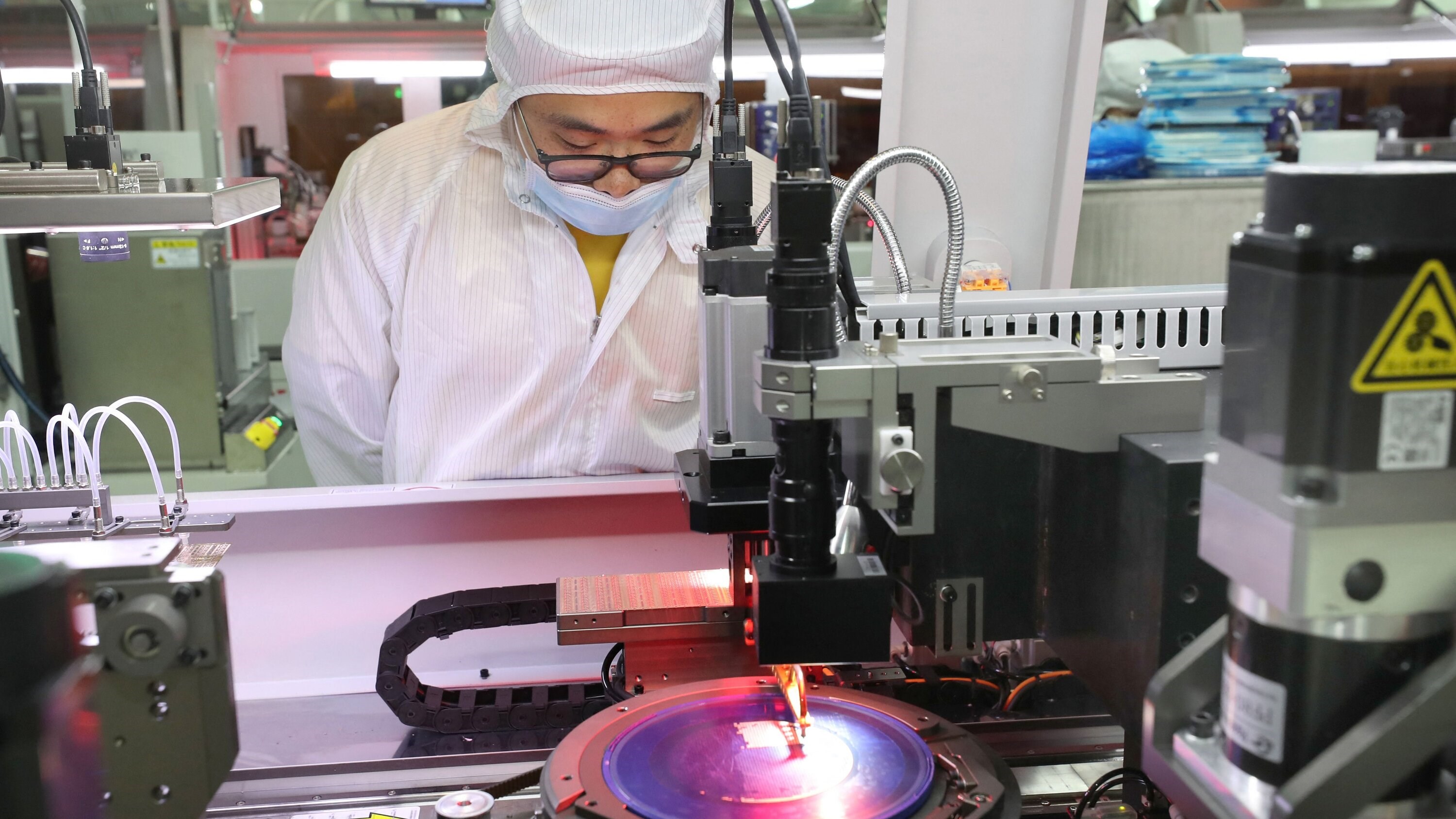Beijing slams new US export controls on Chinese tech companies
China accuses the United States of abusing export controls over Chinese technology companies involving semiconductors and chip-making technology.
-

A semiconductor factory in Nantong, China (AFP/Getty Images)
The United States abuses export control measures to target Chinese companies while maintaining its own technological hegemony, said Chinese Foreign Ministry Spokesperson Mao Ning at a press conference on Saturday, in response to Washington's new restrictions on China's access to US semiconductors and chip-making technology.
Washington put 31 Chinese technological businesses on a so-called "unverified list" on Friday, which comprises companies that US officials were unable to investigate and establish if they are trustworthy enough to import sensitive technology.
Read next: Biden praises IBM's decision to launch investment worth $20 bln
"Because of the need to maintain technological hegemony, the US abuses export controls to maliciously obstruct and suppress Chinese companies," Mao said.
The Spokesperson emphasized that Washington's stance breaches international economic and trade rules and infringes the legitimate rights and interests of Chinese enterprises while also hurting the rights and interests of American companies.
Mao added that the politicization of science, technology, trade, and economic spheres would not curb China's development and will instead backfire on the US.
Read next: Biden signs directive to launch biotech, bio-manufacturing initiative
The White House announced on August 25 the signing of an executive order to implement the CHIPS and Science Act of 2022.
The $280 billion industrial policy bill, which Biden signed into law two weeks prior, includes more than $52 billion in subsidies for US semiconductor manufacturers in an effort to counter China's technological prowess.
"The US has relied too heavily on foreign materials and bioproduction, and our past off-shoring of critical industries, including biotechnology, threatens our ability to access materials like important chemicals and active pharmaceutical ingredients," the White House said in a press release.
The initiative commits a total of $280bn to hi-tech manufacturing and research and is designed to increase the US’ competitiveness with China.
Global shortages of computer chips, prompted by the coronavirus pandemic and the conflict in Ukraine, have caused production delays on a global scale for technology companies and other manufacturers.
Read next: US House passes $52 billion bill to boost semiconductor production
In addition, the industry has gained increased geopolitical prominence as China accused the bill of threatening global supply chains and hampering international trade.
The Chinese Embassy in Washington said Beijing "firmly opposed" the bill as it strikes as a "Cold War mentality."
Due to the global microchip shortage, the US economy lost last year $240 billion, and a war over Taiwan would be even more catastrophic for the US due to its reliance on one single supplier, Taiwan Semiconductor Manufacturing Company (TSMC).

 3 Min Read
3 Min Read








